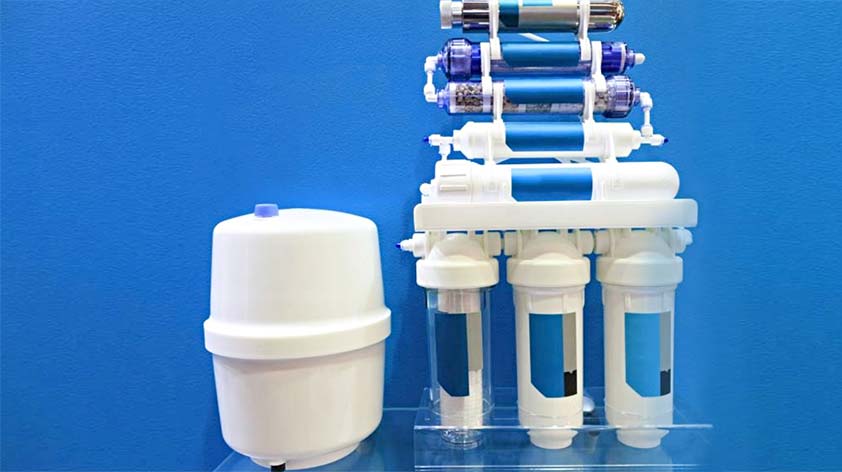
Recently, there have been a lot of debates on which water is better to drink. One of these debates, in particular, is whether or not Reverse Osmosis Water dehydrates us. It’s true that RO purifies water, removes contaminants, and improves taste. But could it be removing essential nutrients and minerals that actually hydrate us?
Let’s explore hydration and how reverse osmosis works, and see if we can answer this question once and for all. Follow on for Fact or Myth: Does Reverse Osmosis Water Dehydrate You?
A Quick Refresher on Human Hydration
Drinking water is the single most effective way to hydrate the human body.
Water is essential for human health because it performs many vital functions in the body. It serves as a solvent in which nutrients, minerals, and other substances are dissolved and transported throughout the body. It also helps regulate our body temperature, cushion joints, and protect tissues. Lastly, water is necessary for normal digestion and metabolism.
A general rule is that the human needs around eight 8-ounce glasses of water per day to stay hydrated; however, this amount can vary depending on a person’s age, sex, weight, activity level, and climate.
Essential Minerals in Water
In water, you’ll find several minerals that are important in maintaining hydration levels. Here is a list of some of the different minerals and nutrients:
Magnesium
Supports your body’s immune system, helps to build strong bones, keep heart rhythm steady, and keeps muscles calm and relaxed for better sleep support.
Sodium
Aids in healthy nerve function and maintains osmotic equilibrium – these are your main electrolytes, so it provides energy production as well which will help hydrate you! Sodium also assists in keeping blood pressure under control while preventing muscle cramps.
Potassium
Is helpful in hydration by limiting fat accumulation while supporting brain cells and regulating blood pressure levels. It can also help reduce nausea.
Calcium
Is one of the most abundant minerals in the human body. It’s needed for proper muscle contraction, nerve function, and blood clotting. Calcium also helps to keep bones healthy and strong.
Reverse Osmosis (RO): A Primer
Reverse Osmosis water is a type of purified water that is made by forcing pressurized water through a semipermeable membrane to remove particles, ions, and molecules from the liquid.
Most RO systems also use a pretreatment process called pre-filtering to reduce suspended solids and other particulates in order to extend the surface life of membrane modules for better performance when filtration is needed. As a rule, RO systems remove approximately 99% of impurities and contaminants.
This type of water is often used for drinking, cooking, and making ice because it’s clean, impurity-free, and tastes great. It’s also commonly used by coffee or tea enthusiasts who want their water to have a minimum impact on the taste and smell of their favorite beverage.
Which Minerals does RO Remove from Water and can it Dehydrate You?
RO systems remove many different substances from water, including minerals that are necessary for human health and hydration. Some people believe that this could lead to dehydration, but how true is this claim?
As mentioned earlier, common minerals removed by RO include:
- Calcium
- Magnesium
- Sodium
- Potassium
These minerals are all essential for human health and hydration that might be removed from water through the reverse osmosis process.
But here’s the thing. Although most people are deficient in essential minerals and nutrients, water can only provide a very small amount of our daily requirements (WHO, 2019). They explain that the vast majority of minerals and nutrients our body needs come from food. Poor diets are actually to blame for the lack of minerals many of us suffer from.
This means that drinking Reverse Osmosis water is perfectly safe, and will not have any noticeable impact on your health. Even for those people who are deficient in minerals, drinking reverse osmosis water is likely to have a net positive effect due to the harmful contaminants it removes. Just make sure to eat a balanced diet, rich in dietary plant foods to ensure your body is getting the minerals it needs.
The benefits of reverse osmosis water far outweigh the drawbacks. So if you’re considering purchasing a home, reverse osmosis water filter, make sure to check out some research and reviews first.
Reverse Osmosis Water Dehydrates You: MYTH!
Water is essential for human life and hydration. While the Reverse Osmosis process removes some of the minerals that are necessary for hydration, it’s important to remember that most people are deficient in these minerals already due to poor diets. Drinking RO water is perfectly safe. And as with anything related to your body, a healthy lifestyle and a balanced diet are the key to hydration, and ultimately a longer, happier life.
What are your thoughts on reverse osmosis water, have you tried it? Let us know in the comments below and join in the conversation on Facebook, Twitter & Instagram!









